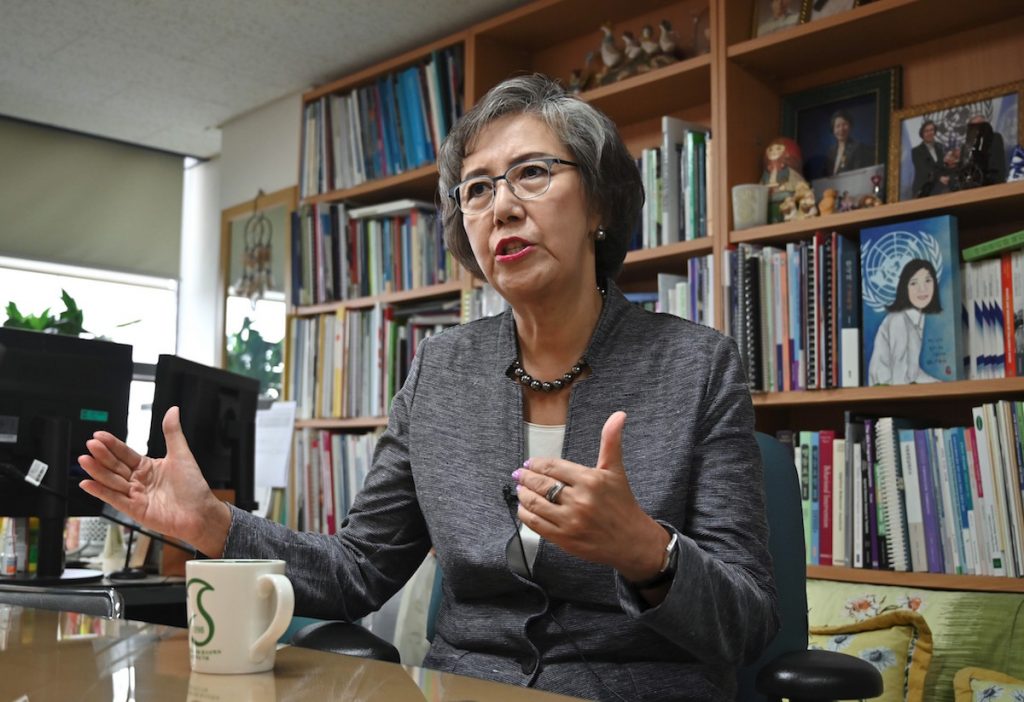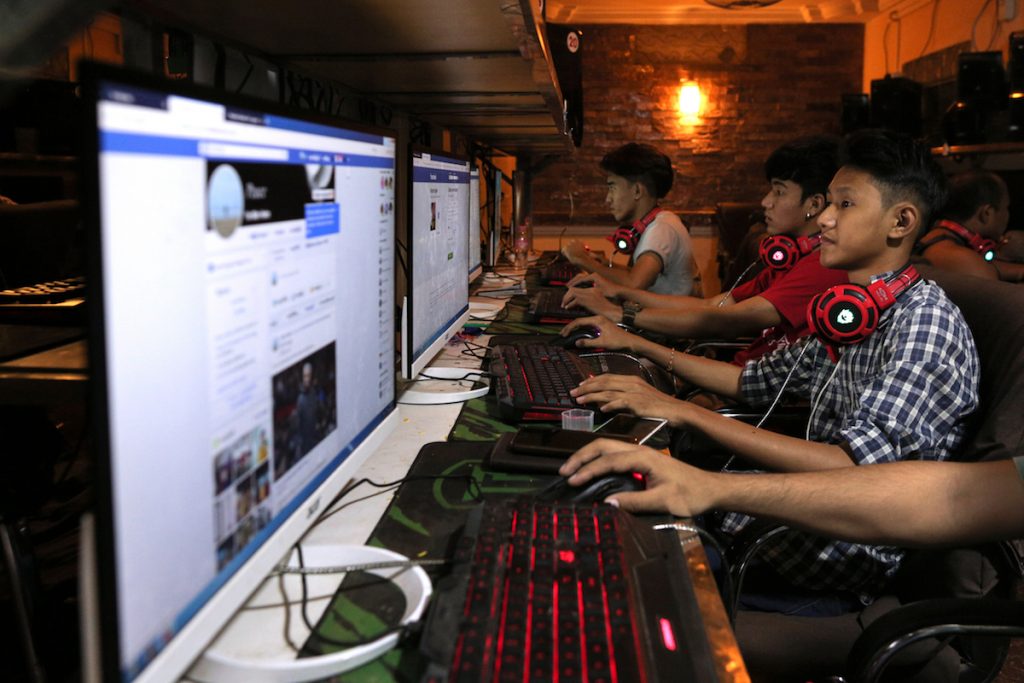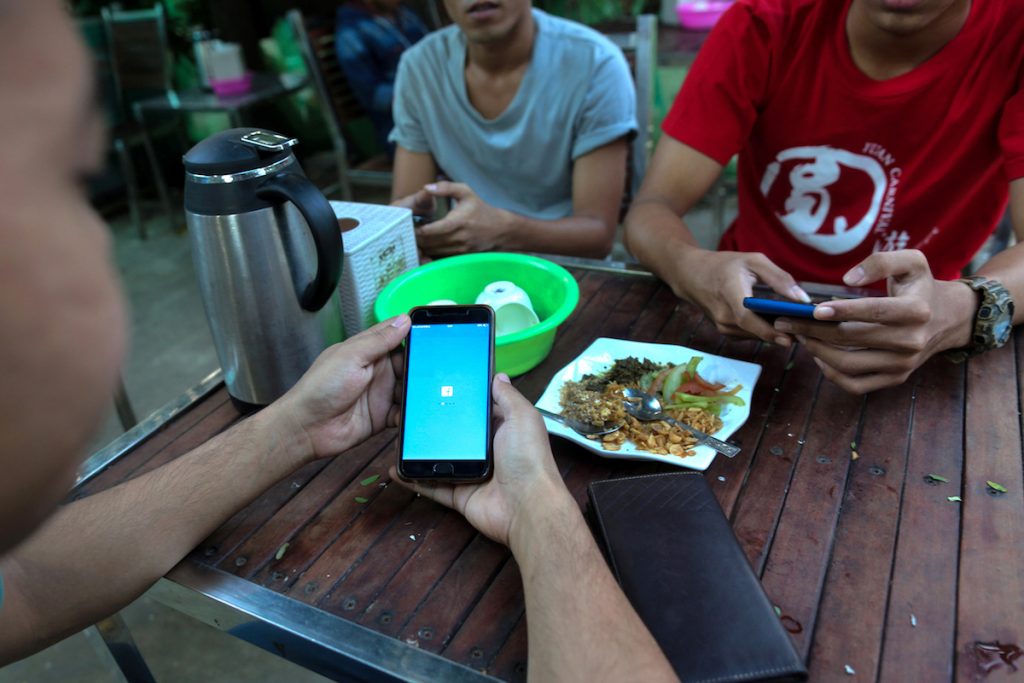They are targeted because of their religion or their ethnicity. They have been threatened, discriminated and violently attacked. And even though the United Nations and other prominent organizations have called numerous times for improvement, discrimination against ethnic minorities in Myanmar is ongoing. With national elections planned for November experts fear that discrimination, racism and hate speech will surge once again in one of Asia’s most divided societies.
Myanmar’s most popular social platform, Facebook, is also the most popular way for military officials, politicians, extremist Buddhist monks and ordinary citizens to spread so-called fake news and violent messages. In the first three months of this year Facebook deleted 51,000 pieces of content in Myanmar because they were in violation with the company’s “community standards prohibiting hate speech,” a Facebook spokesperson told LiCAS.news.
The high number of removed posts indicates that almost three years after a violent crackdown on Rohingya Muslims, in which thousands were killed and hundreds of thousands more were forced to flee to Bangladesh, discrimination and racism is far from gone in Myanmar’s society.
Kyaw Win, the executive director of Burman Human Rights Network (BHRN), said that his team is closely monitoring hate speech on Facebook. “We’re talking about hundreds of posts per day, with 20 to 40 of them being very bad. Most times these posts are anti-Muslim,” he said. “It’s coming from citizens, but also from military officials and politicians from different sides, the USDP [the military led opposition party] as well as the NLD [Aung San Suu Kyi’s ruling party],”
Adding to that is the recent launch of two military-run Burmese language accounts on Facebook, ‘Tatmadaw True News Information’ and ‘Zaw Min Tun’, the latter being named after Myanmar’s military spokesman. A Facebook spokesperson said they are monitoring the pages closely.
A beast
About two years ago Facebook was heavily criticized by a U.N. fact finding mission. “Facebook has been a useful instrument for those seeking to spread hate, in a context where, for most users, Facebook is the internet,” the U.N. investigators said in their report. Earlier Yanghee Lee, then U.N.-assigned special rapporteur on human rights in Myanmar, had said that Facebook has “turned into a beast” and is not “what it originally intended”.

Facebook, which has been accused of inaction in the lead-up to the 2017 crackdown on the Rohingya Muslims, responded by banning 20 individual and organizations from its platform. A Facebook spokesperson told LiCAS.news that they now have over 120 Burmese speakers monitoring their platform.
“It’s important to understand that these 120 native Burmese content reviewers aren’t the only people we have working to identify and remove violating content in Myanmar,” the spokesperson said. “For example, a lot of violating content in Myanmar is image or video based, and doesn’t require local language expertise to recognize that it’s violating. This content goes to what we call a language agnostic team.”
The significance of Facebook as a platform for violent messages was also acknowledged by lawyers representing Gambia in their case against Myanmar at the International Court of Justice. Gambia is accusing Myanmar of genocide against the Rohingya. The lawyers have asked a court in the United States to order Facebook to release posts and communications from Myanmar’s military officials and police forces, saying they could be evidence of genocidal intent.
Facebook has said that Gambia’s request will be evaluated.
Kyaw Win believes that the social media giant has no other option than to follow the request. “Facebook must not conceal such information. We’re not talking about an ordinary crime here, we are talking about genocide. Facebook must comply, it’s an ethical issue,” he said.
Facebook isn’t the only platform used to spread hate speech and discriminatory content. Hate speeches against Myanmar’s Muslims can easily be found on YouTube.
And this month Twitter jumped into action when Buddhist monk Ashin Wirathu opened an account. The monk is known for its extremist speeches in which Muslims, especially the Rohingya, are targeted. He was one of the leaders of the anti-Muslim 969 Movement and has been repeatedly accused of inciting violence against the Rohingya. Twitter suspended Wirathu’s account because it’s violating the company’s rules.
But social media’s efforts to diminish hate speech may not be enough. The real problem of discrimination and racism goes much deeper, experts say. Myanmar has been a strongly divided nation for decades, with the ethnic Bamar ruling over the central parts of the country and having power over national politics as well as the military.

Meanwhile the border regions are home to a wide range of ethnic minorities. Many of them have fought — or are still fighting — against the military to gain more independence. Many of them feel like they are treated by the Bamar as second-rate.
During 50 years of military rule these tensions were covered up. But when military rule ended in 2011 the divisions came to light. A few years later the country, which had been offline much longer than any of its neighbors, embraced cheap smartphones and social media. “That happened in a time when there was already a global wide debate about migration. So those divisions found a very comfortable space online,” Richard Horsey, a Yangon-based independent political analyst said.
Social media may now be the main platform for those who wish to spread hate message or fake news, the problem of racism and discrimination goes back much further, Horsey told LiCAS.News.
“The real problem lies in Myanmar’s society. It needs leadership to change this, not only from the government, but also from religious leaders and elsewhere in the society,” Horsey said.
“That’s what’s lacking from all areas. And that’s a real problem. Where can young people find a good example?”
Elections could trigger increase of hate speech
With national elections coming up, human rights activists fear that hate speech on Myanmar’s social media will increase once again.
Kyaw Win told LiCAS.news that he already notices a strong increase of discriminatory posts now that the election campaign has kicked off.
Phil Robertson, deputy Asia director of Human Rights Watch, said that hate speech ebbs and flows in Myanmar, depending on events and on monitoring.
“Facebook is now much more proactive in examining and taking down content that violates FB’s community standards, but it is a continuous game of whack-a-mole that promises to get more intense as the national elections approach”, Robertson said, adding that the Rohingya continue to be the primary target of hate speech with “xenophobic claims that they should not be considered Burmese citizens.”
“Sadly, judging by the tactics we saw during the 2015 election, when all sorts of false accusations were slung back and forth, it is entirely possible the hate speech situation will worsen significantly as the November 2020 election draws near. Election monitors, human rights groups, and other parts of civil society are going to need to be on their toes”, Robertson continued.

One of the underlying problems is that many in Myanmar’s society don’t see the consequences of racist and discriminating attacks, analyst Horsey said.
“People on the receiving end certainly feel it, but on the other end people are probably not well enough aware of the consequences,” he said. “It doesn’t affect much of the central part of Myanmar, and there’s no political pressure to change it. For many it’s out of sight and out of mind.”






